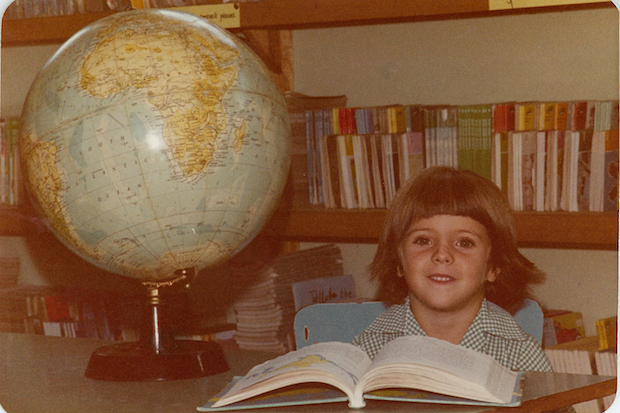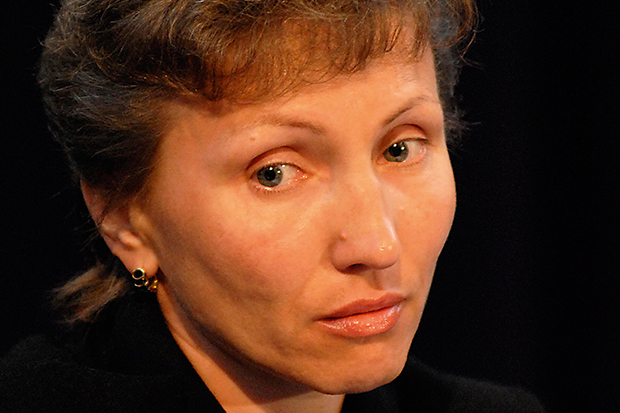Sitting at her desk at the BBC in March 2006, researching a documentary about the Olympic Games, Caroline Jones pressed her thumbs deep into her eyelids, allowed herself to visualise a chocolate brownie and started to salivate. After work she stopped at the supermarket and bought some brownies… along with a chocolate loaf cake and a large pot of cream to pour over it, a giant chocolate bar, an apple puff, two eclairs, a cream slice, a selection of reduced pastries, a loaf of bread, a packet of butter and three packets of biscuits: bourbons, custard creams and Maryland cookies. When she got home she ate it all in under four hours.
In her thoughtful new memoir on her 14-year struggle with bulimia, Jones describes a moment of sharp self-awareness experienced two hours into that binge. There she is: a smart, attractive young woman, surrounded by empty food wrappers:
I think how insane this would look to someone watching. I’m disgusting, a freak. I eat more because I just want to get to the end and get all this food out of me… I drink more cups of tea because it makes the food liquid in my stomach and easier to vomit out at the end.
Compared to the binges of alcoholics or drug addicts, a bulimic bender seems incredibly controlled and strangely sensible. Jones planned her binges and stuck to a budget. She consumed and expelled the food in relative safety and without upsetting anybody else. Then, after vomiting, she would wait to brush her teeth until her saliva had neutralised her stomach acid to avoid damaging tooth enamel.
She had her chaos so terrifyingly organised, it’s no wonder she managed to hide it from her family for over a decade. The shame she felt over her condition was deepened by the fact that her father had spent a heroic career fighting famine and feeding refugees with the United Nations world food programme. How dare his daughter waste precious food?
Inevitably, the reader suspects family issues must be at the root of such self-harming behaviour. But she presents her parents as loving and adventurous, raising their three children where they were stationed: Ethiopia, Kenya, Sudan and Pakistan. Despite the regular relocations, the Joneses were and are a stable unit: pictured here smiling and sunbaked, cuddling cats in dusty gardens, waving bare feet from African swimming pools.
The problem started when Caroline was separated from them and sent to boarding school in Kent, aged 16, in 1991. Comfort- eating made her feel fat, until a new friend taught her how to stick her fingers down her throat. Gradually the lost girl became powerful: she was cheating the laws of nature. She could have her cake and not eat it!
But she shows how gradually bulimia ate away at her, gnawing at her self-worth. Although she graduated from Oxford and never lacked boyfriends, she learned to lie and hide. She fell into half-relationships with emotionally absent men. She was arrested for shoplifting binge foods.
Jones is painful alive to the frustrations and ironies of her condition. When she finally seeks professional help, a professor explains the problem with an illustration of a cake, of all things. On the bottom layer is her childhood, her history. In the middle are her emotions: anxiety, depression, anger. And on top is the bulimic behaviour.
There are no magic fixes on the long road to recovery. Honesty, love and self-knowledge come in slow slivers. The last time she attempts a binge, she stares down at the biscuits and realises that: ‘The great fantasy, the lie, the belief that this was my map through darkness has crumbled away to dust.’ This still leaves her, like the rest of us, with a degree of darkness. But the more she learns to speak her mind and ask those around her to supply her emotional needs, the less she needs to fill ‘the spaces in between’ with custard creams.
Got something to add? Join the discussion and comment below.
Get 10 issues for just $10
Subscribe to The Spectator Australia today for the next 10 magazine issues, plus full online access, for just $10.
Available from the Spectator Bookshop, £17.00. Tel: 08430 600
You might disagree with half of it, but you’ll enjoy reading all of it. Try your first month for free, then just $2 a week for the remainder of your first year.














Comments
Don't miss out
Join the conversation with other Spectator Australia readers. Subscribe to leave a comment.
SUBSCRIBEAlready a subscriber? Log in